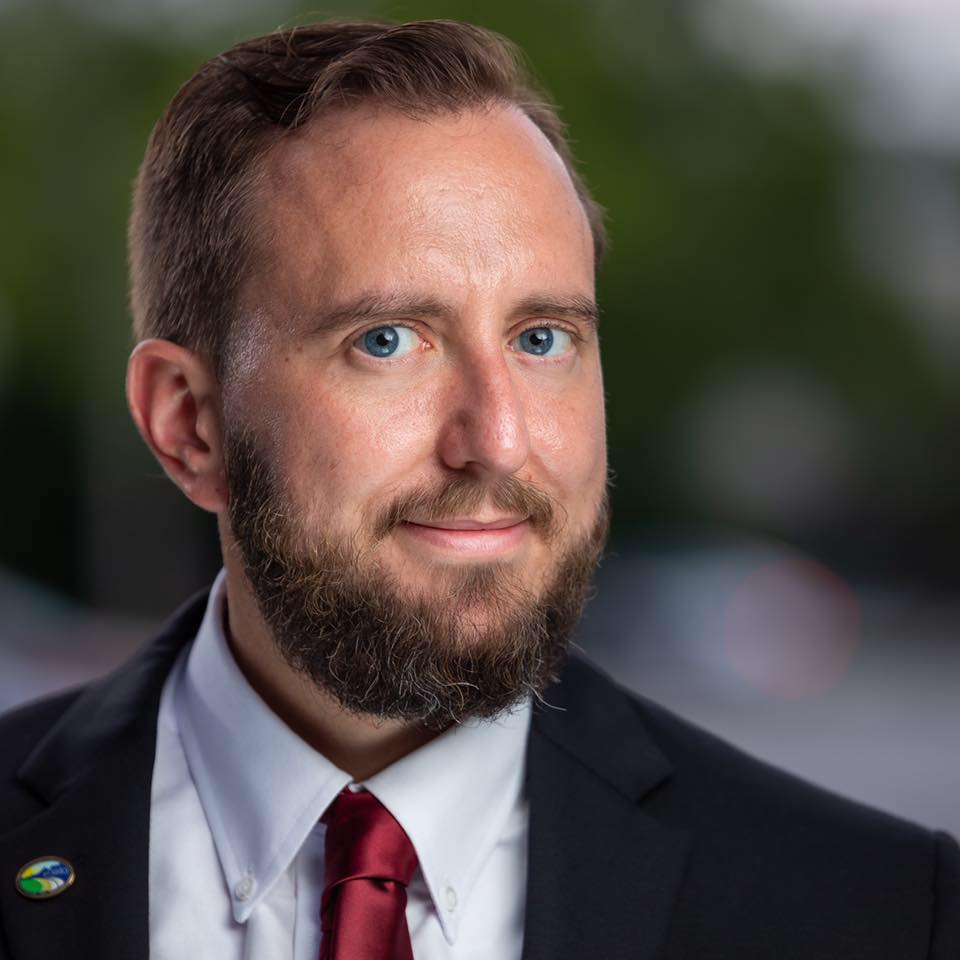The mission of our Office of Emergency Management is to ensure DBHDS can carry out its mission essential functions on Virginia’s worst day. Those essential functions are to:
- Protect the health and safety of DBHDS employees and consumers of agency services.
- Provide visible leadership for the 12 DBHDS-operated facilities, 39 Community Services Boards and 1 Behavioral Health Authority comprising Virginia’s public behavioral health and developmental service system.
- Ensure the availability of behavioral health and developmental services for the citizens of the Commonwealth.
Three domains comprising the OEM
Facility Coordination:
Shay Black is our Facility System Emergency Coordinator. He works tirelessly within, among, and between our 12 state-operated facilities to support field-level emergency mitigation, preparedness, and response operations. Shay supports facility-based teams in their plan development & review, emergency exercises & training, and other initiatives.
Disaster Behavioral Health Coordination:
Stephanie Waite is our Disaster Behavioral Health Coordinator. She ensures DBHDS can deliver on its obligation to coordinate the provision of disaster behavioral health services to Virginians in the immediate aftermath of a disaster or crisis. Stephanie deployed to support the local response to the Virginia Beach shooting in 2019 and led the agency’s VA COPES Warmline project during the COVID-19 response. For more about Disaster Behavioral Health Coordination, click here.
Planning and Recovery:
Phil Miskovic is our Emergency Planner. He interfaces with state and local government agencies to ensure DBHDS emergency plans dovetail with the plans of these agencies in support of Commonwealth goals. Phil is also instrumental in recovery efforts related to the FEMA Public Assistance Program in the weeks and months following disaster impacts.
Office of Emergency Management Personnel

Shay Black
shay.black@dbhds.virginia.gov
804.389.7562

Stephanie Waite
stephanie.waite@dbhds.virginia.gov
804.516.1778

Phil Miskovic
phil.miskovic@dbhds.virginia.gov
434-390-9996
The Office of Emergency Management is a component of the DBHDS Office of Enterprise Management Services:
Craig Camidge, Director, Enterprise Management Services
craig.camidge@dbhds.virginia.gov
804-350-3716
Disaster Behavioral Health (DBH) Information
What is “Disaster Behavioral Health?”
Disaster behavioral health response includes those services that increase resiliency and coping ability of those affected by disaster. These services offer support, active listening, psycho-education about disaster responses, coping skills, grounding techniques as well as referrals for those that may need additional support. Disaster behavioral health services are delivered in the immediate aftermath of a disaster and are part of Emergency Support Functions #6 and #8 in the Commonwealth of Virginia Emergency Operations Plan (COVEOP).
How does DBH work in Virginia?
As in all disasters, planning is based on the foundational emergency management principle: all disasters are local. The first response to a disaster always occurs locally. The capacity to respond to the psychological effects of disaster must also be organized and implemented at the local level first. Local planners understand the cultural, social, and psychological needs of people in their area. State efforts build on the strengths of our communities. State-level involvement builds upon the structure and organization of the local and regional response. The state will augment, not replace, community structures already in place to deliver disaster behavioral health services.
Disaster behavioral health services are provided in locations and settings that are dependent upon the scope and scale of the disaster. In instances of a mass casualty event, for example, DBH services may be provided as part of a Family Assistance Center (FAC), where survivors and family members can receive information about the event, assistance with victim services funding and other supports. DBH services are also provided within evacuation shelters at local and state levels.
The Options for DBH Response:
Where behavioral health is concerned, Virginia responds to disaster in the following way:
- Mutual Aid Coordination: When demand for support following disaster exceeds the capacity of the locality, CSBs provide mutual aid to each other. In recent years, DBHDS has helped coordinate some of the mutual aid for response to several incidents. Support from surrounding CSBs allows the local CSB to meet the needs on the ground until the community can regain full capacity to handle local needs.
- Contractual Services: If an event is declared to be “State-led” or “State-coordinated”, DBHDS has the ability to contract with CSBs and other providers to ensure disaster behavioral health support is provided. This is done primarily with Virginia’s CSBs and ensures funding is not a barrier to caring for the needs of disaster-impacted individuals when they need it most.
- Supplemental Resources: DBHDS utilizes several programs to supplement the service capability of our primary partners. This includes our ever-expanding Disaster Behavioral Health Team. Also included is our recently concluded Virginia COPES program. These efforts supplement (not replace) local efforts and the options noted above.
Become a Disaster Behavioral Health Volunteer!
If you are interested in becoming a disaster behavioral health volunteer, you must have completed the following minimum requirements:
- Disaster Behavioral Health Orientation provided by DBHDS
- FEMA Independent Study 100: Introduction to the Incident Command System
- FEMA Independent Study 700: Introduction to the National Incident Management System
- Crisis or Disaster Response Training such as: Psychological First Aid, CCP (Crisis Counseling Assistance and Training Program), Crisis Response Training (National Organization for Victims Assistance), Critical Incident Debriefing, or other evidence informed disaster or crisis response training.
- Have had some experience in providing crisis intervention or disaster behavioral health services.
Our disaster behavioral health volunteers have a good understanding of emergency management and behavioral health principles. When the team is deployed, they operate under the COVEOP which aligns with the National Incident Management System. It is important that our volunteers have an understanding of these principals so that they can better understand their role as a disaster behavioral health volunteer.
Volunteer Application: Click Here
Disaster Behavioral Health Team Standard Operating Procedure: Click Here
Disaster Behavioral Health Just in Time Training for Shelter Operations
Contact:
Stephanie Waite, Disaster Behavioral Health Coordinator (804)-516-1778, stephanie.waite@dbhds.virginia.gov